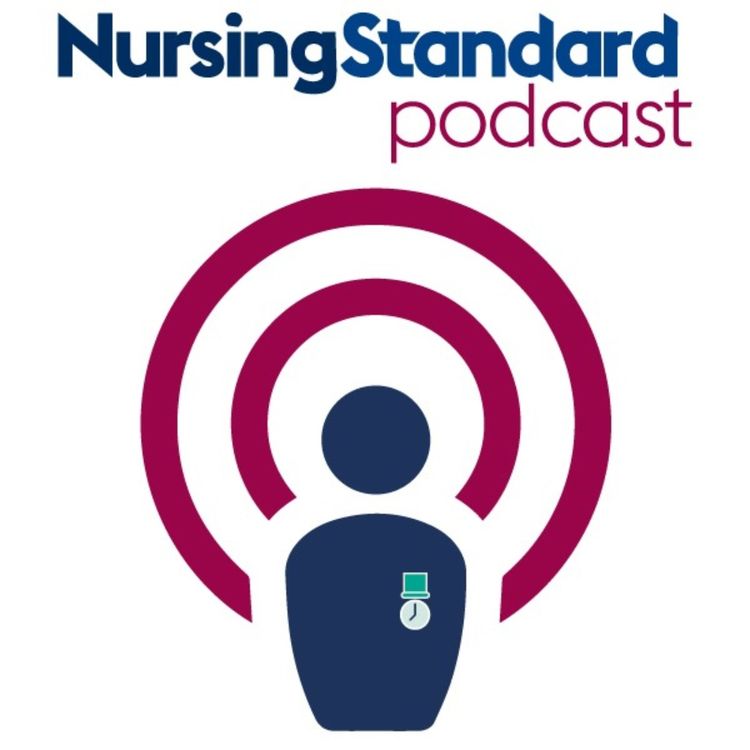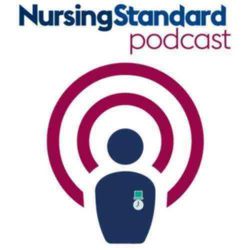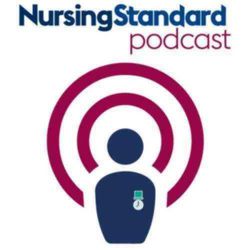Share

Nursing Standard Podcast
How to write a will
Season 3, Ep. 2
•
Writing a will is the kind of task we put off - but preparing one is actually, generally quite straightforward.
In this episode, solicitor Daniel Price explains what you need to do ahead of making a will writing appointment and gives an overview of the process.
He also tells senior news reporter Kimberley Hackett the importance of a will for nurses who are not married, have property, children including those from different relationships and or vulnerable beneficiaries.
Nurse Michelle Crisp also explains why surgery led her to write a will and the peace of mind it has given her.
For more episodes of the Nursing Standard podcast, visit rcni.com/podcast
More episodes
View all episodes

14. Who is your unsung nursing hero of 2025, and why?
15:20||Season 15, Ep. 14Who is your unsung nursing hero of 2025, that person you work with who has your back and deserves recognition?In the final Nursing Standard podcast episode of 2025, previous guests including Queen’s Nurse Caron Sanders-Crook and RCN Scotland Nurse of the Year Kirsty Cartin tell us who they think should be applauded for the work they have done over the past 12 months.From the nursing lecturer who is ‘a prime example of what a mental health nurse should be’, to the social care nursing leader who has made ‘a profound difference to the profession’, their nominees have all made the working lives of nurses a little easier.Follow the Nursing Standard podcast on Apple Podcasts, Spotify, Acast or wherever you get your podcasts.For more episodes of the Nursing Standard podcast, visit rcni.com/podcast
13. ‘Biased’ decisions and mistrust: what went wrong at one NHS trust?
25:33||Season 15, Ep. 13Nurses’ distrust of senior management comes under the spotlight in this week’s episode of the Nursing Standard podcast, as nursing staff at one London trust reported feeling suspicious of managers making ‘biased’ decisions based on close relationships.RCNi content editor Alistair Mason and senior journalist Shruti Sheth Trivedi also discuss a medicines management error linked to the death of a patient, as well as the new NHS uniforms.University of Glasgow senior research associate Simon Walker also joins the podcast to highlight the important issue of suicide among nurses, and how to address it through occupational health.Follow the Nursing Standard podcast on Apple Podcasts, Spotify, Acast or wherever you get your podcasts.For more episodes of the Nursing Standard podcast, visit rcni.com/podcast
12. Are cuts to nurse bank shifts putting patient safety at risk?
22:27||Season 15, Ep. 12The latest Nursing Standard podcast discusses an NHS trust’s decision to restrict bank shifts, news of a chief nurse being reinstated to her role following suspension, and free tea and coffee being scrapped for one trust’s staff, among other hot topics.For more episodes of the Nursing Standard podcast, visit rcni.com/podcast
11. How to write a reflective account for revalidation
28:48||Season 15, Ep. 11How do you write a reflective account for revalidation – and how often should you reflect as a busy nursing professional?This episode of the Nursing Standard podcast looks at the reflective elements of the NMC’s revalidation requirements, which include writing five such accounts every three years.Our podcast guest, Queen’s University Belfast senior lecturer Barry Quinn, also argues that reflection is something that should be done on an ongoing basis for its own sake, and when done well, can benefit a nurse’s practice and mental well-being. In the episode, Dr Quinn explains how nurses can work structured reflection into their daily practice, and offers practical tips to help nurses complete their reflective accounts for NMC revalidation.Follow the Nursing Standard podcast on Apple Podcasts, Spotify, Acast or wherever you get your podcasts.Use RCNi Portfolio to store and track your reflective accounts and discussionsFor more episodes of the Nursing Standard podcast, visit rcni.com/podcast
10. Two full-time jobs: why would a nurse risk their registration?
15:28||Season 15, Ep. 10Working two full-time jobs: why would a nurse risk their registration?This week’s episode of the Nursing Standard podcast discusses the case of a nurse who was suspended after secretly working two full-time jobs. RCNi content editor Alistair Mason and senior journalist Shruti Sheth Trivedi also discuss the Nursing and Midwifery Council’s proposed registration fee rise, and the government’s recommendation that NHS staff on Agenda for Change contracts should get a below-inflation 2.5% pay rise in 2026-27.For more episodes of the Nursing Standard podcast, visit rcni.com/podcast
9. How can nurses help combat the spread of health misinformation?
24:30||Season 15, Ep. 9How can nurses help to counter the spread of health misinformation?Birmingham City University senior nursing lecturer Scott Colton believes nurses are in a unique position to help intervene with patients who may be getting poor quality information online and help them to make informed healthcare decisions.In the latest episode of the Nursing Standard podcast, Mr Colton describes what he believes is behind the spread of misinformation, how nurses can spot patients who may have been influenced by it and what they can do to engage with them.For more episodes of the Nursing Standard podcast, visit rcni.com/podcast
8. NMC fee rise: what happens next?
20:29||Season 15, Ep. 8A proposed rise in the Nursing and Midwifery Council's annual registration fee is one of the main topics discussed in this week’s episode of the Nursing Standard podcast, as the nursing regulator approves plans to launch a public consultation on increasing it.A nurse’s £300 parking fine and clocks going back at the weekend are also discussed in the episode by RCNi content editor Alistair Mason and senior journalist Shruti Sheth Trivedi.Subscriber content highlighted includes band 5 nursing roles and why more than half of these posts are not being advertised, and a continuing professional development article on managing the risk of phlebitis arising from use of peripheral vascular access devices.For more episodes of the Nursing Standard podcast, visit rcni.com/podcast
7. Sick of 'resilience'? How to manage emotions at work
43:23||Season 15, Ep. 7How can nurses manage emotional demands in their jobs and day-to-day lives and not fall prey to expectations to be ‘endlessly resilient’ in the face of challenging working conditions?Nurse educator and researcher Charlotte Ross outlines practical strategies nurses can use to manage what she describes as ‘emotional labour’ in the workplace in this latest episode of the Nursing Standard podcast.Dr Ross discusses the importance of keeping work and private lives separate, learning to understand moral distress and recognising small victories, as well as what nurses’ teams and organisations should be doing to offer support.For more episodes of the Nursing Standard podcast, visit rcni.com/podcast
6. From chief nurse to first female Archbishop of Canterbury
20:28||Season 15, Ep. 6Former chief nursing officer for England Dame Sarah Mullally – the youngest person to have been appointed to the post – has also made history by becoming the first female Archbishop of Canterbury.The topic comes under the spotlight in the latest episode of the Nursing Standard podcast, which also discusses the publication of long-awaited reviews on the NMC’s handling of fitness to practise cases flagged by a whistleblower, as well as nurses in Northern Ireland threatening to strike over the devolved government’s failure to implement this year’s 3.6% pay award.Subscriber content highlighted by RCNi content editor Alistair Mason and senior journalist Shruti Sheth Trivedi includes a fall in flu vaccine uptake among nurses, and whether the nursing regulator is using its powers to temporarily suspend nurses under investigation fairly.Follow the Nursing Standard podcast on Apple Podcasts, Spotify, Acast or wherever you get your podcasts.For more episodes of the Nursing Standard podcast, visit rcni.com/podcast